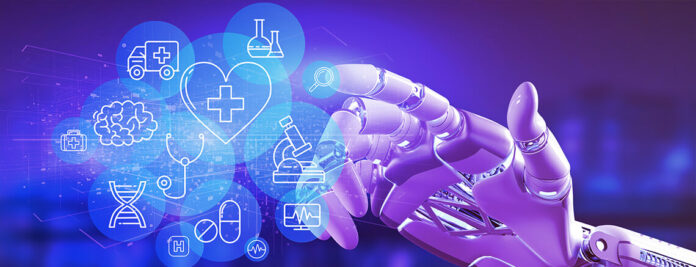Artificial intelligence is changing systems and methods in healthcare. Healthcare uses natural language processes to categorize certain data patterns. Artificial intelligence can be used in clinical trials to speed up research and validate medical codes. Some applications of artificial intelligence in healthcare.
Smart medical devices
Countless smart devices are being developed and are flooding the consumer world. In healthcare, there are also a number of devices that can be used in intensive care units to monitor patients. The smart algorithms in these devices can reduce the cognitive burden on doctors while ensuring timely care for patients.
System Networked Infirmaries
Unlike today, a large hospital treating all types of diseases can be divided into smaller centres, and these small and large clinics will be connected to a single digital framework. Patients at risk of deterioration can be easily identified using artificial intelligence.
Immunotherapy
https://www.passionateinanalytics.com/machine-learning-applications-against-covid-19/Immunotherapy is one of the most affordable and optimistic approaches to cancer treatment. Patients can use their own immune system to fight malignant tumors. However, only a small proportion of patients respond to current immunotherapy options and oncologists still lack an accurate and reliable method to determine which patients may benefit from this option.
Smart healthcare
There are smartphones that have built-in software and artificial intelligence hardware that can take pictures of skin, infections, wounds or other parts. Artificial intelligence and mobile apps make it easier for patients to stay in touch with their doctors and vice versa.
Medical images and diagnoses
In addition to medical coding, artificial intelligence can examine images and X-rays of the body to determine the cause of diseases that need to be treated. In addition, AI technology is also being applied to healthcare through electronic medical records, allowing cardiologists to identify critical cases first and make accurate diagnoses, avoiding errors.
Brain-computer interface
Artificial intelligence technology has launched a new revolution with the development of brain-computer interfaces. They allow people with neurological diseases or people with neurological damage due to stroke or spinal cord injury to regain function, including speech and movement. Together, AI and BCIs can help decipher the neural activity associated with intentional hand movements.
Analysis of health data
Advances in artificial intelligence have made it easier for patients and doctors to collect health data on a daily basis. The best example of this technology is any smartwatch that can calculate heart rate. AI is also being used in healthcare to keep health records and track patients’ medical journeys. AI is also used to automate responses to requests for prescriptions and test results. It allows doctors to perform their tasks more efficiently.
Virtual Health Assistant
When combined with healthcare apps, virtual assistants can be used to inform people when to take their medicines and medication alerts. This information allows the current mental state of the patient to be determined. They can also be used to monitor and support patients in the absence of the doctor.
Clinical decisions
Machine learning technologies, which are part of artificial intelligence, can be applied to electronic medical records to help doctors find correct, error-free statistics validated by medical experts. In addition, natural language processes such as chatbots can be used for everyday conversations, where users can ask questions as if they were talking to a doctor and receive fast, reliable answers.
Drug detection
Artificial intelligence can be used by pharmaceutical companies to identify previously used drugs. Machine learning and Big Data as part of artificial intelligence have great potential to reduce the value of new medicines.
Pain relief
Artificial intelligence and the creation of recreated realism can easily distract patients from the cause of existing pain. In addition, AI can also be used to manage crisis situations related to narcotics.
Equal treatment in healthcare
Artificial intelligence and machine learning algorithms can be used to reduce bias in the field by promoting data diversity and transparency to improve health equity.
Conclusion
The primary aim of AI in healthcare is to analyze relationships between or treatment techniques and patient outcomes. AI can achieve fast and accurate Diagnostics. It will be very helpful to reduce the human errors as well as the cost of treatment.
Follow and connect with us on Facebook, LinkedIn & Twitter

